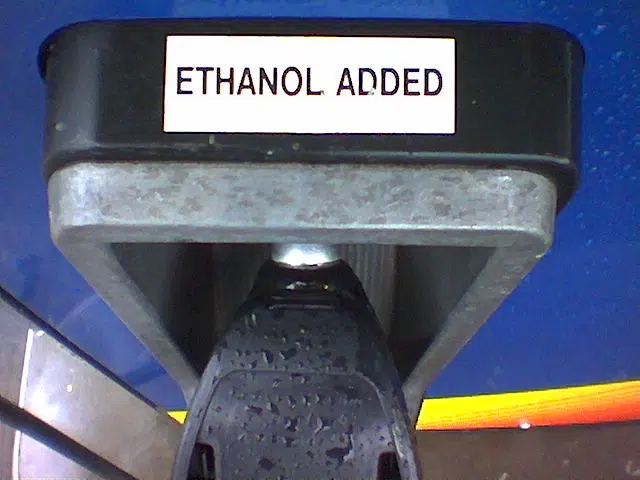The U.S. Environmental Protection Agency (EPA) today is issuing an emergency fuel waiver allowing the sale of E15 gasoline — gasoline blended with 15% ethanol — nationwide during the summer driving season. By doing so, EPA will keep E15 on the market giving consumers more options across the nation. This is consistent with President Trump’s Executive Order Declaring a National Energy Emergency, directing the EPA to consider issuing emergency waivers to allow for year-round E15 sales.
U.S. Secretary of Agriculture Brooke Rollins issued the following statement today in support of the Environmental Protection Agency’s emergency approval of the summer sale of E-15:
“President Trump is committed to lowering energy prices by unleashing American energy production, and it all starts with U.S. farmers. This move to allow the summer sale of E-15 will provide immediate relief to consumers, provide more choices at the pump, and drive demand for corn grown, processed, and used right here in America. Our nation’s great corn growers are critical to helping the U.S. achieve energy independence which is essential to national security.” said U.S. Secretary of Agriculture Brooke Rollins. “I thank Administrator Zeldin for moving quickly to implement this emergency fuel waiver and his continued commitment to U.S. famers and the U.S. biofuels industry. At USDA we look forward to our continued partnership with EPA and are working diligently to increase our energy dominance in the U.S. and abroad by expanding market access for American biofuels on the world stage.”
POET, the world’s largest producer of biofuels, thanked President Trump and the EPA for granting an emergency wavier for E15 and called for a permanent solution to year-round access to the fuel blend.
Joshua Shields, POET Senior Vice President of Corporate Affairs:
“POET is grateful to President Trump for continuing access to affordable, American-made fuel. Now it’s time to find a permanent legislative solution guaranteeing all Americans access to year-round E15. At a time when farmers are facing market uncertainty and numerous challenges, we need to open new domestic demand that higher biofuel blends create. E15 reduces America’s reliance on foreign oil, lowers prices at the pump, and supports farming families across rural America. It is a true win for consumers nationwide.”
American Coalition for Ethanol (ACE) CEO Brian Jennings issued the statement below following the announcement:
“ACE made year-round E15 access a top priority during our DC Fly-In last month, and we’re grateful to our members and Congressional champions who continue to advocate on this issue. Last year, EPA finalized a rule to allow permanent, year-round E15 sales in some Midwest states starting today — thanks to strong leadership from state governors and persistent grassroots pressure from our industry.
“Nevertheless, emergency waivers and a patchwork of state-specific rules are a temporary remedy, and we badly need a permanent fix to allow E15 year-round on a nationwide basis. It is long past time Congress takes action. We came incredibly close to getting the bipartisan Nationwide Consumer and Fuel Retailer Choice Act across the finish line at the end of 2024, and now Congress must finish the job and guarantee Americans year-round access to E15. Particularly during a time of tariff-related trade disruptions, uninterrupted market access to E15 is essential to supporting corn demand and improving farm income. Enacting legislation to allow E15 nationwide access will save families money at the pump, increase domestic fuel production, strengthen U.S. energy security, boost the farm economy, reduce tailpipe pollution, and bring long-overdue certainty to fuel markets for retailers and refiners alike.”
Today, more than 95% of all U.S. vehicles are approved to use E15 and over 4,000 retail sites offer E15 across 33 states. E15 typically costs 5 to 25 cents per gallon less than E10 and 40 cents to $1.00 less than non-ethanol gasoline. With a higher-octane rating and lower emissions profile, E15 gives consumers the ability to choose a higher quality, cleaner-burning fuel at a better price.
Sources: EPA, USDA, POET, ACE





Comments